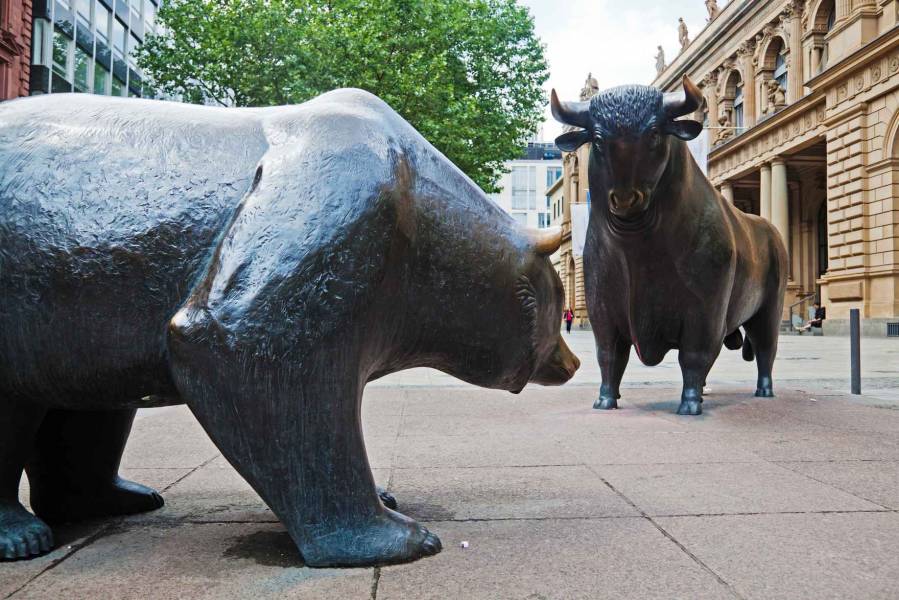Investors and traders alike love using animal symbols as a way to define themselves or another group of people. Apes, Bears, and bulls, are all part of the investment world. That said, what do they mean? We are gonna find out in this article.
 What’s a Forex currency pair?
What’s a Forex currency pair?
If you are trading in Forex UK, the first thing you probably noticed is that currencies come in pairs. So for example, a common pair is USD (US Dollar) and JPY (Japanese Yen), represented in the FX exchange as follows: USD/JPY.
In other words, as a trader, you would be betting on the conversion rate between the USD and the JPY, which we call a price quote or an FX rate. Just for explanatory purposes, as of June 12th, 2021, 1 USD is worth 109.67 JPY. Will it go down or will it go up? That’s what Forex is all about!
What’s a Bear Market?
When traders want to buy low and therefore invest in a currency pair that’s going down, we refer to this type of investment as investing/buying in a bear market. Safe-heaven currencies such as the JPY or the USD will often strengthen in a bear market, as riskier currencies are being sold off.
Why is it called a Bear Market?
Did you ever see a movie with a bear attacking humans? In general, the bear will stand on his 2 feet, before falling back down to stomp the ground. This downward action is what characterizes the bear market: a market value with prices that are falling.
What’s a Bull Market?
As you may have guessed, the bull market is the opposite of the bear market. When traders are looking to invest in a currency that’s rising, then they are investing, or rather, selling a currency pair in a bull market. When there are lots of bulls betting big in the market, this raises confidence in other potential investors, since the risk is therefore much lower than betting in a more volatile currency pair.
The profits, if there are any, will generally be less important in bull markets since it’s less risky. This is why FX currencies such as CAD (Canadian Dollar), AUD (Australian Dollar), and NZD (New Zealand Dollar) will often have a sudden rise, while other strong currencies will see a slight decline in value. Among those, we have the USD, JPY, EUR, or CHF, which are also called safe-haven currencies
Why is it called a Bull Market?
The bull’s horns usually go up when attacking, like the currency price in a bull market. By following the market trends and knowing how to distinguish them, you will be able to make better decisions when trading FX.

Founder Dinis Guarda
IntelligentHQ Your New Business Network.
IntelligentHQ is a Business network and an expert source for finance, capital markets and intelligence for thousands of global business professionals, startups, and companies.
We exist at the point of intersection between technology, social media, finance and innovation.
IntelligentHQ leverages innovation and scale of social digital technology, analytics, news, and distribution to create an unparalleled, full digital medium and social business networks spectrum.
IntelligentHQ is working hard, to become a trusted, and indispensable source of business news and analytics, within financial services and its associated supply chains and ecosystems










